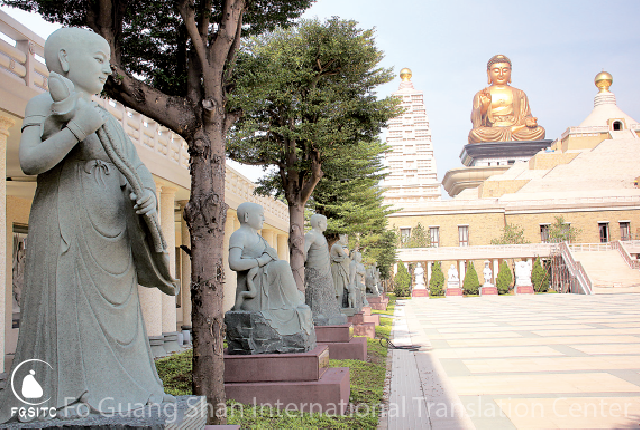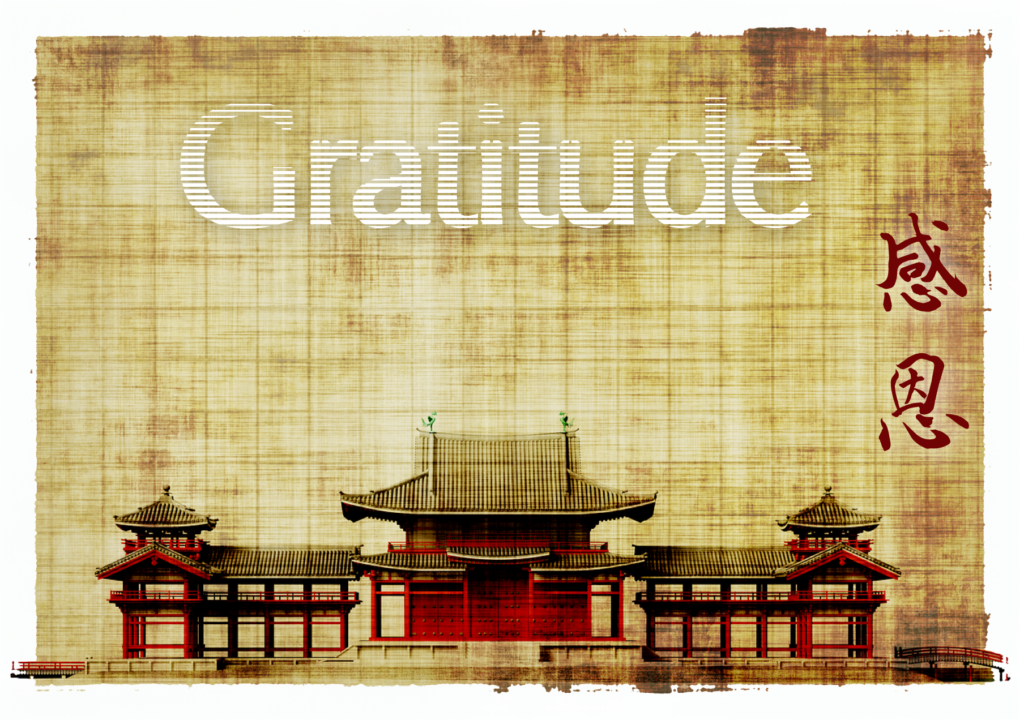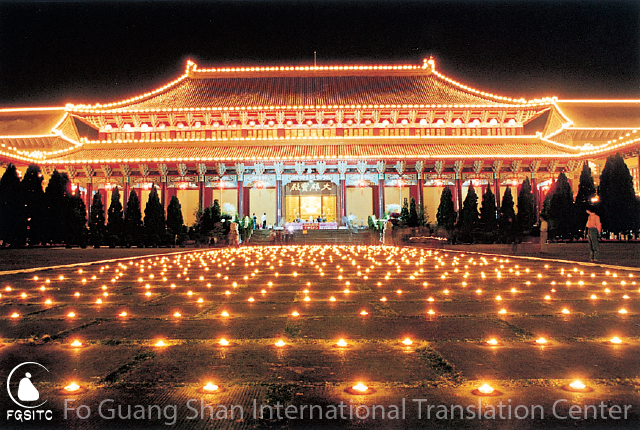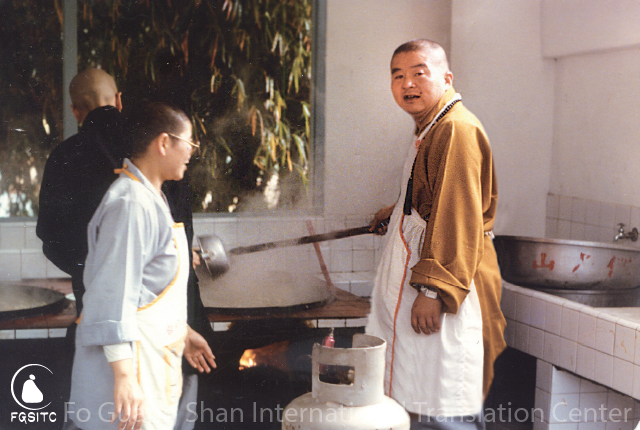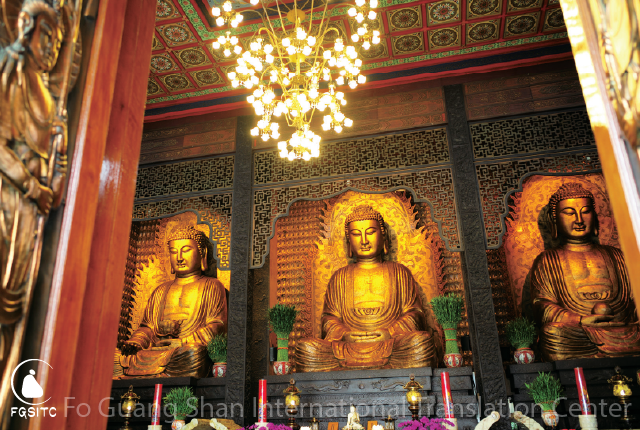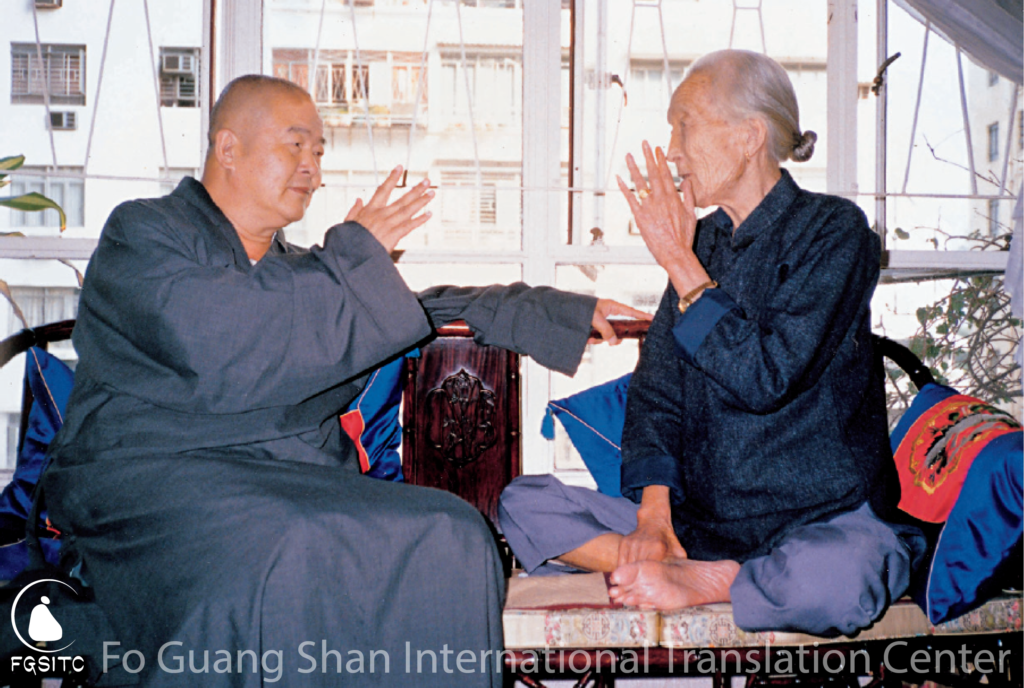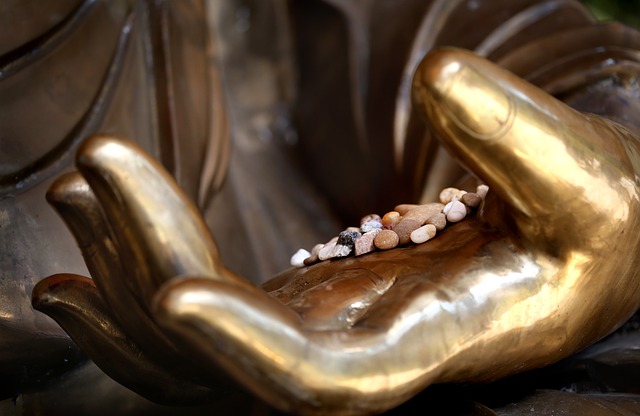While the Four Noble Truths explain the phenomena of the universe, the Buddha expounded on them mainly as a guide for life. It is inadequate, however, to merely learn the Four Noble Truths. We must resolve, cultivate and practice accordingly. We must end the causes of suffering, practice the path, and reach the cessation of suffering in order to achieve liberation. Consequently, the Four Universal Vows and the six perfections, which are derived from the Four Noble Truths, constitute the skillful means for us to arrive at this state.
Through professing these vows, bodhisattvas aspire to benefit sentient beings and act in accord with the truth to reach this same end.
Progression from the Four Noble Truths to the Four Universal Vows occurs naturally, methodically, and purposefully. And with these vows complimenting the Four Noble Truths, our own practice becomes more complete and effective, enabling us to travel the bodhisattva path of Mahayana Buddhism.
If we understand suffering and its causes, yet do not vow to eliminate them, how could we claim to be cultivating ourselves to become bodhisattvas? Even if we know the infinite teachings, if we do not practice them, we will not be able to solve our problems in life, much less enter the right path. How then could we possibly fulfill the vows of bodhisattvas to attain Buddhahood?
Therefore, after understanding the Four Noble Truths, we should proceed to make the Four Universal Vows and work to cultivate and fulfill them. There are limitless sentient beings tormented by the sufferings of birth and death. How can we not resolve to rescue these beings and guide them to the other shore? How can we not resolve to help them unlock those shackles, eradicate afflictions and the accumulation of karma, and free themselves to experience complete liberation from all suffering?
The Collection of Translated Terms states that practicing Buddhism requires three states of mind: the mind of great wisdom, the mind of great compassion, and the mind of great vow.
Aspiring to these three states of mind means to follow the Four Universal Vows, to aspire to the bodhi mind, to seek the attainment of Buddhahood, and to liberate all sentient beings. Let us look more closely at these vows.
1. Sentient beings are limitless; I vow to liberate them.
As suggested by the Buddhist adage, “Teaching the Dharma is my duty, and benefiting sentient beings is my mission,” we, as Buddhists, must not only seek personal liberation, but also assume the responsibility of propagating the Dharma to liberate other sentient beings. In order to practice the Mahayana path, we must make this vow.
However, while it is easy to make such a vow to ourselves, it is much more difficult to make such a vow before the Buddhas and other sentient beings. Liberating sentient beings necessitates more than providing them with food when they are hungry or medicine when they are sick. These superficial provisions will not enhance their wisdom, nor help them to escape from the cycle of birth and death.
The Diamond Sutra states, “…be they born of eggs, wombs, moisture, or transformation, or whether they have form, or no form, or whether they are able to perceive, or do not perceive, or are neither able to perceive nor not perceive, I cause them to enter nirvana without remainder, liberating them.” Ultimately, the approach to liberate sentient beings is to teach them the Dharma so that they can be free from afflictions and awaken to the Way.
2. Afflictions are endless; I vow to eradicate them.
To practice Buddhism is to fight our afflictions. Once our afflictions have been conquered, our Buddha nature will appear, and we will have made progress toward Buddhahood. Yet if we cannot end our own afflictions, not only will we be unable to escape suffering, it will be impossible to liberate other sentient beings. Consequently, the first thing we must do in practicing Buddhism is to live well ourselves and accomplish the cessation of all afflictions.
Afflictions can hurt us and prevent us from experiencing peace. For example, greed causes us to strive in harmful ways, resulting in suffering. Anger agitates us so that we cannot find serenity. Ignorance and wrong views cover our wisdom and prevent us from walking the right path. We must vow to eradicate all afflictions and diligently practice the threefold trainings of morality, meditative concentration, and wisdom that will enable us to achieve liberation and live with joy. The sutras describe a hierarchy of eighty-four thousand afflictions. Without the support of great vows, we could easily lose the whole battle and be claimed by the sea of our afflictions forever. Would this not be regrettable?
3. Teachings are infinite; I vow to learn them.
Generally, if we want to live a worry-free life, it is necessary to acquire many skills and forms of knowledge. To liberate sentient beings, not only do we need to learn Buddhism, but also all forms of knowledge open to us. To truly learn infinite teachings, we need to obtain worldly knowledge, the Buddha’s teachings, and all manner of abilities. Just as the ocean accepts the current from the tiniest stream, so, too, should Buddhists learn all teachings to liberate all sentient beings.
The Flower Adornment Sutra actively encourages bodhisattvas to study and learn extensively, including the Tripitaka and the threefold trainings, as well as the many teachings and methods of the numerous Buddhist schools. We must strive to learn them all!
4. Buddhahood is supreme; I vow to attain it.
Becoming a Buddha requires undergoing many hardships over long periods of time. Still, we should strive to follow in the footsteps of the sages and attempt to reach their level. By making this vow we not only pledge to attain Buddhahood for ourselves, but also for all sentient beings. This is the vow’s true meaning.
In reality, the Buddha’s attainment of Buddhahood was not merely the result of his birth in the human world, his renunciation, and his practice of asceticism. It also required his subjugation of maras, which include both the external temptations of sounds, senses, forms, and material gains, as well as the internal forces of greed, anger, and ignorance. As we cultivate through the many cycles of birth and death, there may be times when we become intimidated, lose our initial resolve, and are overrun by maras. However, the difficulty of the endeavor makes Buddhahood even more valuable.
In short, after understanding the Four Noble Truths, we need to emulate the bodhisattvas and learn all of the teachings. Then we need to apply these fundamental teachings in our lives, including the Four Noble Truths, the four means of embracing, and the six perfections, in order to fulfill the Four Universal Vows of the bodhisattva path. The Inspiration for the Bodhicitta Pledge states, “The most important entrance to the path is determination. Cultivation is a pressing matter, but one must first make vows. Once vows have been made, sentient beings can be liberated. With determination, Buddhahood can be attained.”
From Where is the Way?, written by Venerable Master Hsing Yun.
Image from Pixabay.


